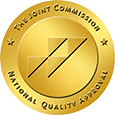
How Do Detox Programs Help With Recovery?
One of the major reasons to use detox programs is because of withdrawal symptoms. When someone quits using drugs or alcohol, their body goes through withdrawal. Over time, the patient’s body and mind became used to having drugs present. When these chemicals are removed, the body is unable to compensate.
Depending on the type of drug, patients may develop a variety of different side effects. Some of the most common withdrawal symptoms include anxiety, pain, nausea, hallucinations, heart arrhythmia and shaking. Since these symptoms can be life-threatening, it is important to go to a professional drug and alcohol detox center.
What Are the Benefits of Detox?
Through different detox programs, patients can get help with the withdrawal process. At an inpatient facility, patients are monitored at all times. Medical staff members can help prevent and treat severe side effects.
In addition, detoxing at professional detox programs allows patients to completely quit using. Since patients are monitored at all times, they cannot relapse while they are at the treatment center. This helps to support long-term recovery. The detox center also removes stress factors that could otherwise trigger a relapse.
Depending on the program, patients may get help with more than just detox. Therapy options can help patients heal relationships with the people around them. They learn how to develop a support system and find new hobbies to replace the addiction. In addition, the medical care in detox programs helps patients experience better physical and mental health.
What Treatment Options Are Available?
Every detox center is different, but the best centers offer individualized care. Through individualized programs, patients are given the exact type of treatment they need. Patients can get help through options such as:
- Dual diagnosis treatment
- Group therapy
- Family counseling support
- Medically supervised detox
- Individual and cognitive behavioral therapy
- Trauma therapy and support
Dual diagnosis treatment is a popular option at treatment centers. Many people in treatment have a mental disorder like anxiety, depression or bipolar disorder. Previously, they may have used their addiction to self-medicate.
When drugs and alcohol are removed, patients still need help for their mental disorder. Dual diagnosis treatment is designed to treat the addiction and the mental disorder at the same time. As a result, patients get more support for their long-term sobriety.
Detox Is Not Enough for Long-Term Sobriety
The goal of detox is to safely remove drugs and alcohol from the body and manage withdrawal symptoms. While this helps patients become sober, it does not remove their addiction. The underlying causes of the addiction are still present. To stay sober, patients need to have extra support through therapy and rehab. Developing a support network of sober friends and family members can also help patients with recovery.
After having an addiction for years, it will take time to treat the factors that contribute to substance abuse. Rehab helps find these underlying causes. In addition, patients are provided with addiction education, therapy and other programs to improve their chances of maintaining long-term sobriety.
Many thousands of people have successfully recovered from a drug or alcohol addiction. After someone realizes that they have an addiction, the next step is to find the right detox and rehab centers. If you or a loved one suffers from an addiction, help is available. To find out how you can begin your journey toward sobriety, call us at Beaches Recover at 8666050532 today.

